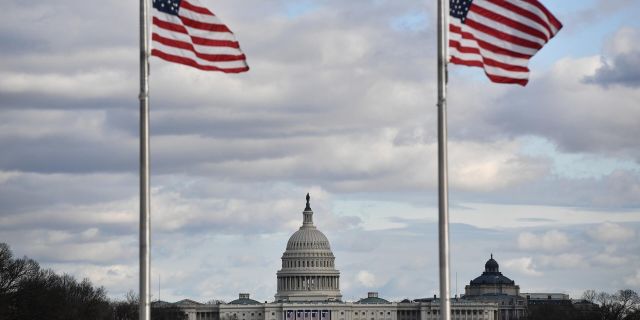CNBC: in the US national security strategy, Biden paid special attention to Russia and ChinaThe Joe Biden administration has published a US national security strategy, CNBC reports.
The article notes that the American president sees Russia as an immediate danger, and China as a long—term threat.
Christina Wilkie
- President Joe Biden has published a national security strategy, a document that is required from every new administration
- The United States will "effectively compete" with China and "restrain Russia, which is a danger," Biden wrote.
- Vladimir Putin's special operation in Ukraine "radically reduced Russia's status in relation to China and other Asian powers, such as India and Japan."
WASHINGTON — On Wednesday, President Joe Biden published his first national security strategy, which outlines how the United States is going to "effectively compete" with China in the coming years, while "deterring Russia, which poses a danger."
The publication of the 42-page document was originally scheduled for last December, but when it became obvious that Russia was preparing for military action in Ukraine, it was postponed.
"Russia and China present challenges of various kinds," Biden wrote. "Russia poses an immediate threat to a free and open international system, recklessly flouting the basic laws of the international order today, as evidenced by its brutal military actions in Ukraine."
"China, on the contrary, is the only rival intending both to change the international order and to increase economic, diplomatic, military and technological power in order to achieve this goal," the president wrote.
Biden also stressed that the United States will participate in strategic rivalry with China, but at the same time "move forward on those priority issues that require joint work," such as global health and climate change.
Each new presidential administration is obliged to publish a national security strategy, but the document serves more as a symbolic expression of the president's ambitions and values than as a draft of some military plans.
In general, Biden wrote that his administration will focus on three priority areas: the development of the industrial and high-tech sectors of the United States; strengthening global alliances and coalitions like NATO; investments in the modernization and strengthening of the army.
The damage inflicted on the Russian army during the protracted conflict "will most likely force Moscow to rely more on nuclear weapons in military planning," Biden wrote. The United States will "not allow" Russia to achieve its goals through the use of nuclear weapons or nuclear threats. How exactly the United States is going to do this, the president did not specify.
In addition to maintaining and increasing military assistance to Ukraine, "we are once again paying attention to strengthening our collective resilience against common threats from Russia, including asymmetric threats" to the infrastructure of the United States and American democracy.
As for the global level, Biden wrote that the Russian operation in Ukraine "radically lowered the status of Russia in relation to China and other Asian powers, such as India and Japan."
While Russia poses a regional threat to Europe and a danger to global markets, the Kremlin, as Biden wrote, "does not have such a wide range of capabilities as the PRC."

